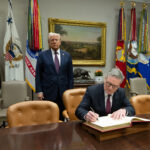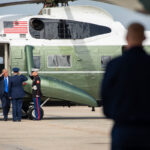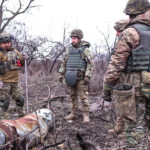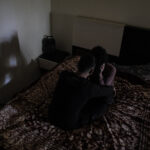On Aug. 29, 2021, a US drone strike killed 10 civilians in Afghanistan, including seven children. On Nov. 13, 2021, the New York Times reported on the cover-up of a 2019 air strike in Syria that killed over 50 civilians. Yet, the recent media coverage of these strikes is the exception rather than the norm. Instead, the thousands of civilian deaths and injuries caused by the US drone war over the last two decades have been largely ignored: There have been no mass protests in the streets, and little to no political and public pressure to end the use of drones.
Instead, from its inception, drone warfare has been defended as professional, efficient, and precise. President Barack Obama described drone strikes as “precise, precision strikes against al-Qaida and their affiliates,” and President Joe Biden defended the use of drones as part of an ongoing “unforgiving, targeted, precise strategy” to fight terrorism. Because of this supposed ability to precisely target combatants, drones are portrayed as weapons that allow war to be fought more justly.
This portrayal of drones as precision weapons that can discriminate between combatants and non-combatants, however, obscures how drone warfare can itself be terrorism. According to Airwars, the US has declared at least 91,340 strikes, which have killed anywhere between 22,679 and 48,308 civilians. So, the US drone war has not only caused the deaths of thousands of civilians but has predictably and foreseeably inflicted indiscriminate and devastating trauma on everyone subjected to drone surveillance and targeting, whether they are suspected terrorists or not. The indiscriminate infliction of trauma and the threat of death is a form of terrorism that must be acknowledged.
WHY THE US DRONE WAR IS TERRORIST
There are many definitions of terrorism, but most include the following elements: Terrorism involves the intentional harming of non-combatants (civilians) and is committed for ideological reasons and/or political ends. Some definitions also include the intrusion of fear into everyday life as part of the distinctive moral wrong that terrorism inflicts.
Regardless of intentions, drone warfare is a form of terrorism when drones cause foreseeable civilian deaths, and inflict indiscriminate and devastating psychological trauma on everyone subjected to drone surveillance and targeting.
The US drone campaign meets these criteria. First, the drone war has intentionally harmed non-combatants. The claim that drone attacks precisely distinguish between combatants and civilians is false, mainly because we can’t assume that the categories of civilian (or non-combatant) and combatant are justly applied or even clearly defined during drone operations. For example, the Obama administration’s claims that drones strikes caused few civilian casualties was based on “a narrowed definition of ‘civilian,’ and the presumption that, unless proven otherwise, individuals killed in strikes are militants.” Similarly, the New York Times reported that, in response to their inquiry about the 2019 strike, US Central command claimed that the strike “killed 16 fighters and four civilians. As for the other 60 people killed, the statement said it was not clear that they were civilians, in part because women and children in the Islamic State sometimes took up arms.”
This means that innocent people have been intentionally targeted and killed by drones simply because they might be terrorists. This practice of targeting represents an extraordinary broadening of the idea of “combatant.” When people are deliberately targeted and killed because they are assumed to be terrorists, based on “suspicious” behavior or simply because of where they live, these killings are not unintentional “collateral damage.” Instead, these are intentional acts of killing that predictably and foreseeably result in the deaths of innocent people.
Second, even if civilians killed by drones were killed by honest mistake (as was claimed in relation to the Aug. 29, 2021 strike in Afghanistan), this doesn’t mean that drone warfare meets the just war criterion of discrimination, because drone surveillance is indiscriminate. Drones engaged in surveillance are visible and audible to everyone living in the area: Men, women, and children; combatants, and non-combatants alike. And living under drone surveillance is living with the constant fear of being killed or wounded or that one’s loved ones might be killed or wounded, for reasons that may never be known.
This constant fear and anxiety causes devastating psychological trauma and illustrates the intrusion of fear into everyday life that some see as a defining element of the moral wrong of terrorism. For example, one Pakistani man described the experience of living under drones as follows: “God knows whether they’ll strike us again or not. But they’re always surveying us, they’re always over us, and you never know when they’re going to strike and attack.” Another said: “[e]veryone is scared all the time. When we’re sitting together to have a meeting, we’re scared there might be a strike. When you can hear the drone circling in the sky, you think it might strike you. We’re always scared. We always have this fear in our heads.”
TERRORISM AND INTENTION
Some might argue that drone warfare can’t be a form of terrorism because drone pilots and military strategists don’t intend to harm non-combatants. This is a mistake. To define terrorism in terms of how perpetrators conceive of their actions is to give perpetrators too much power. It is the indiscriminate harm to non-combatants for political or ideological reasons that lies at the heart of the moral condemnation of terrorism, and not the perpetrators’ intentions. So, regardless of the intentions of drone pilots, the military, and political leaders, drone warfare is a form of terrorism when drones are used in ways that cause foreseeable civilian deaths and injuries, and inflict indiscriminate and devastating psychological trauma on everyone subjected to drone surveillance and targeting.
It is deeply confronting to acknowledge the possibility that the US may be engaging in terrorism, but recognizing this fact is the only way to truly understand the ethical dimensions of drone warfare, and to do justice to the thousands of innocent victims of the ongoing drone campaign.
Jessica Wolfendale is Professor and Chair of Philosophy at Marquette University. She is the author of War Crimes: Causes, Excuses, and Blame (with Matthew Talbert), and Torture and the Military Profession, and has published widely on military ethics, terrorism, torture, security, and just war theory. You can read some of her work here.




















